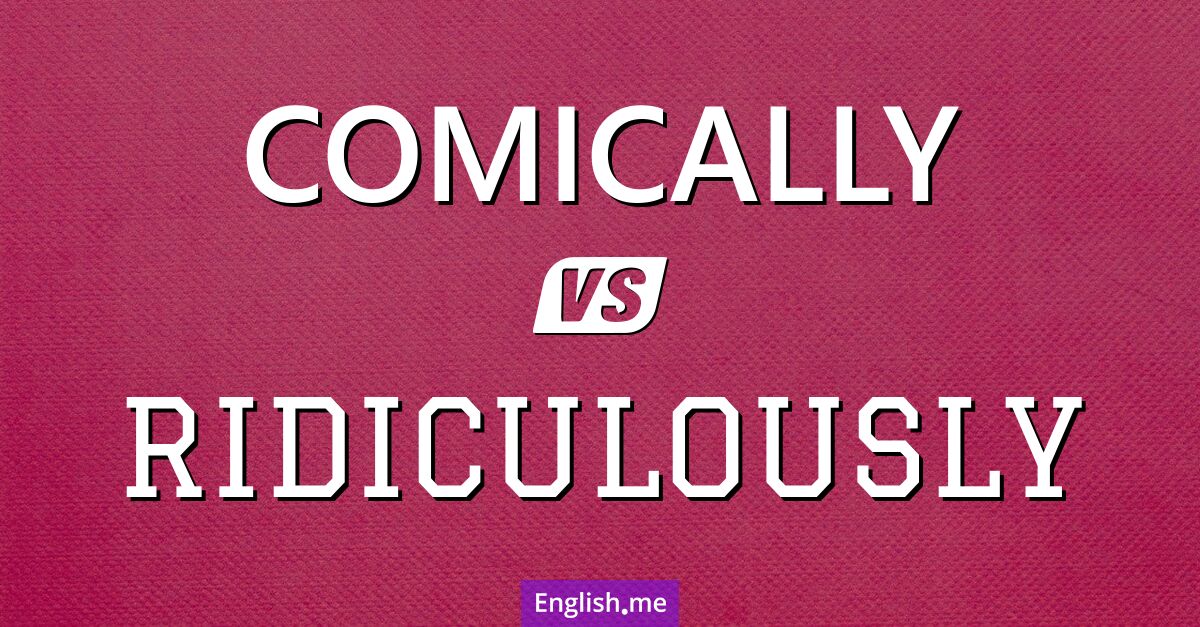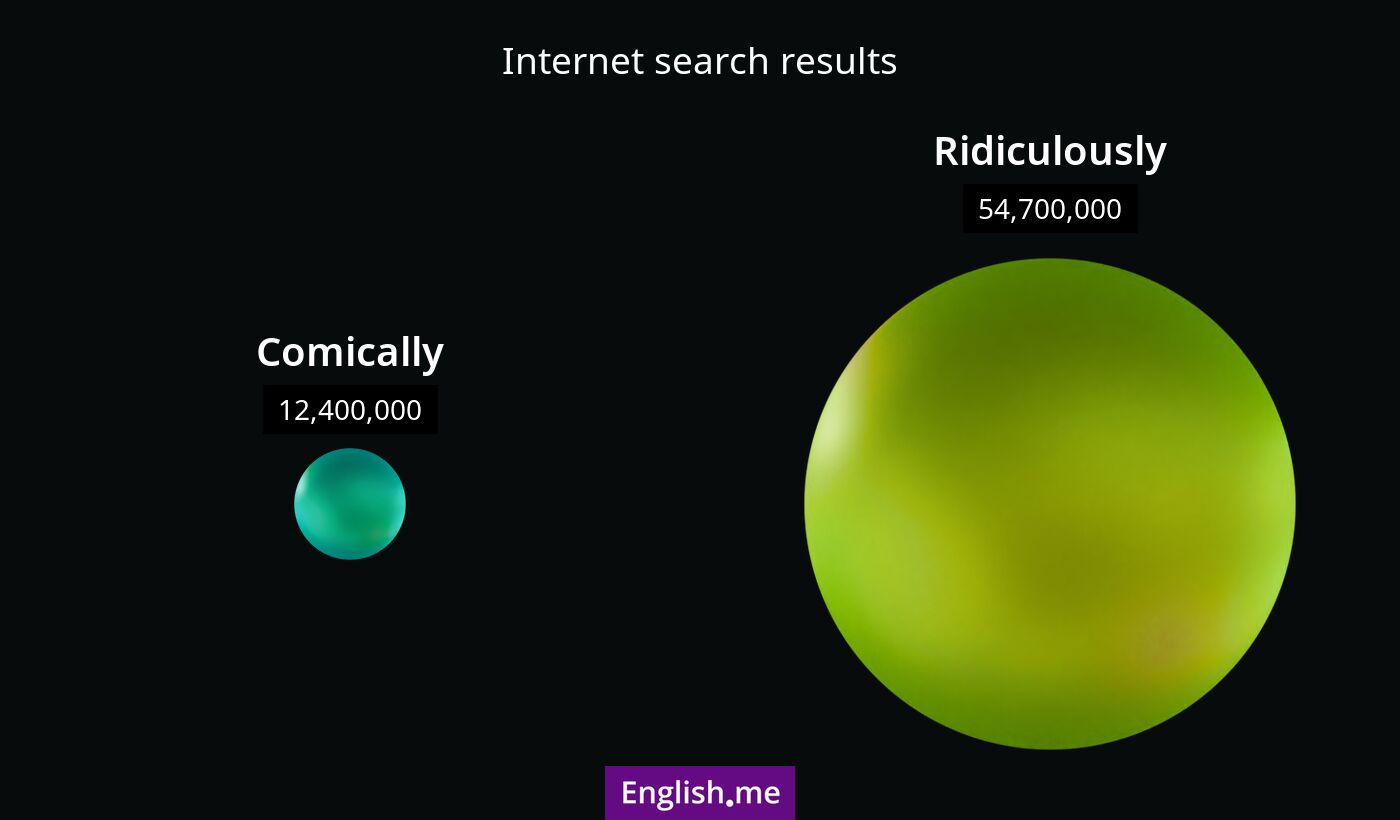"Comically" vs. "ridiculously": where humor meets absurdity
Reviewed and edited by  Lloyd Cooper 19/12/2024, 22:52
Lloyd Cooper 19/12/2024, 22:52
English.me team member

 What is similar?
What is similar?
Both "comically" and "ridiculously" are adverbs used to describe actions or situations that are exaggerated or extreme. They can convey a sense of something being out of the ordinary or noteworthy due to their intensity or absurdity.
 What is different?
What is different?
"Comically" implies that something is humorous or intended to provoke laughter, often in a lighthearted or playful manner. "Ridiculously" suggests that something is absurd, unreasonable, or extreme to the point of being hard to believe, but not necessarily funny.
 Which one is more common?
Which one is more common?

 Examples of usage
Examples of usage
Comically- He slipped on the banana peel and fell comically.
- The comedian's gestures were comically exaggerated.
- She wore a comically large hat to the party.
- The suitcase was ridiculously heavy for a weekend trip.
- They charged a ridiculously high price for the meal.
- He was driving ridiculously fast down the narrow street.

 English
English español
español française
française italiano
italiano deutsche
deutsche 日本語
日本語 polski
polski česky
česky svenska
svenska Türkçe
Türkçe Nederlands
Nederlands